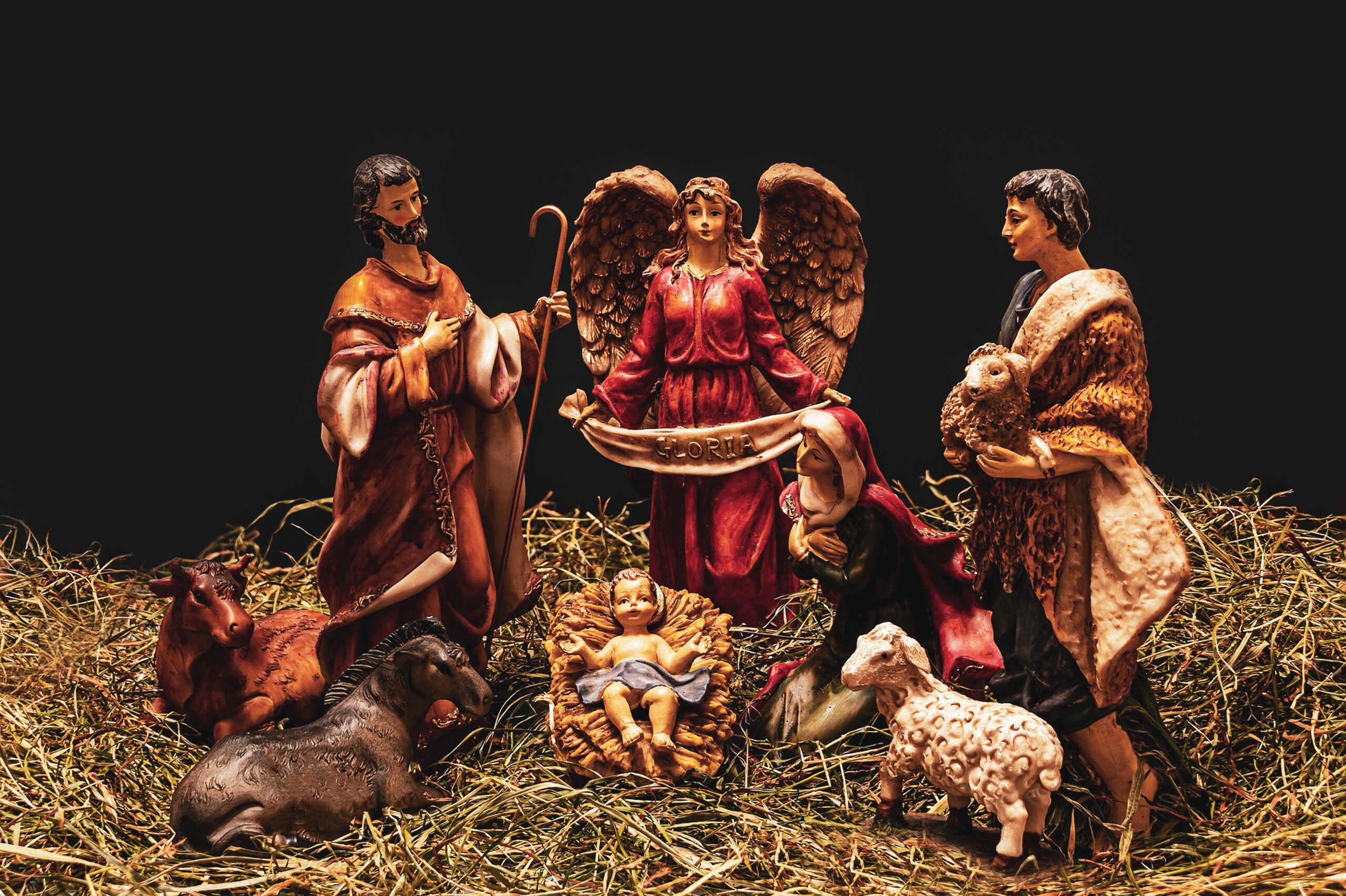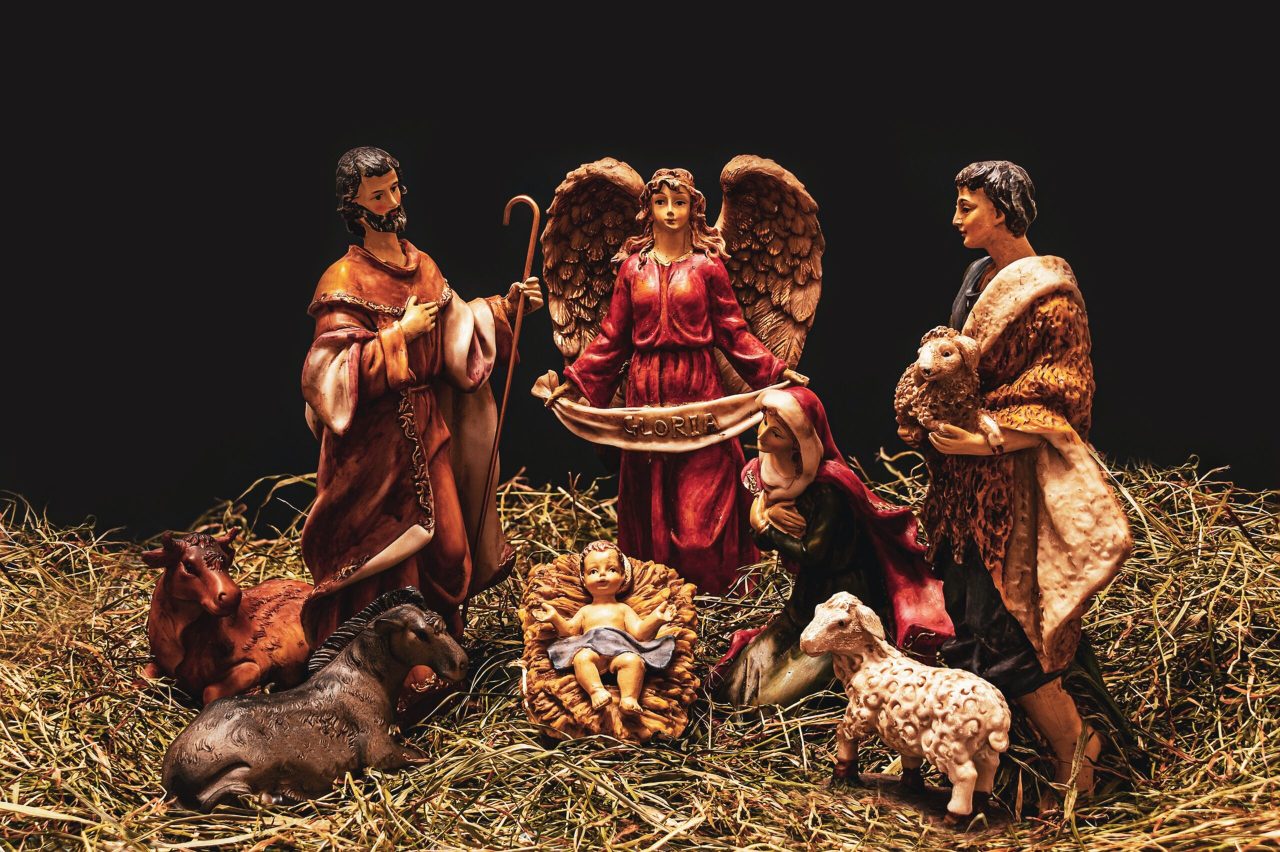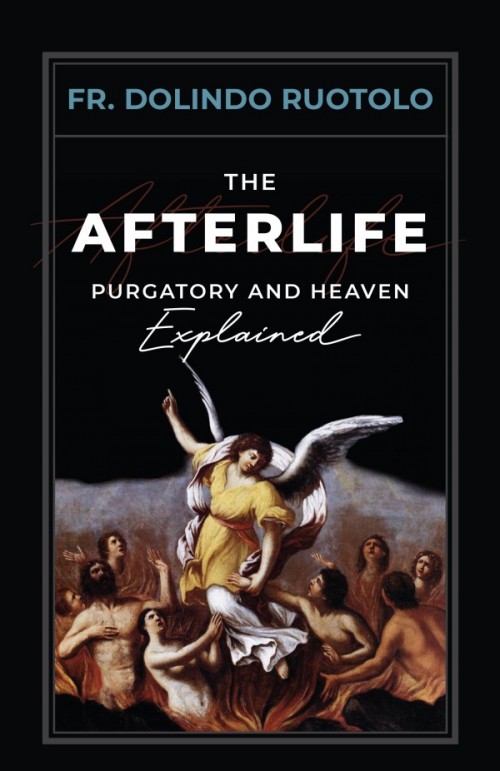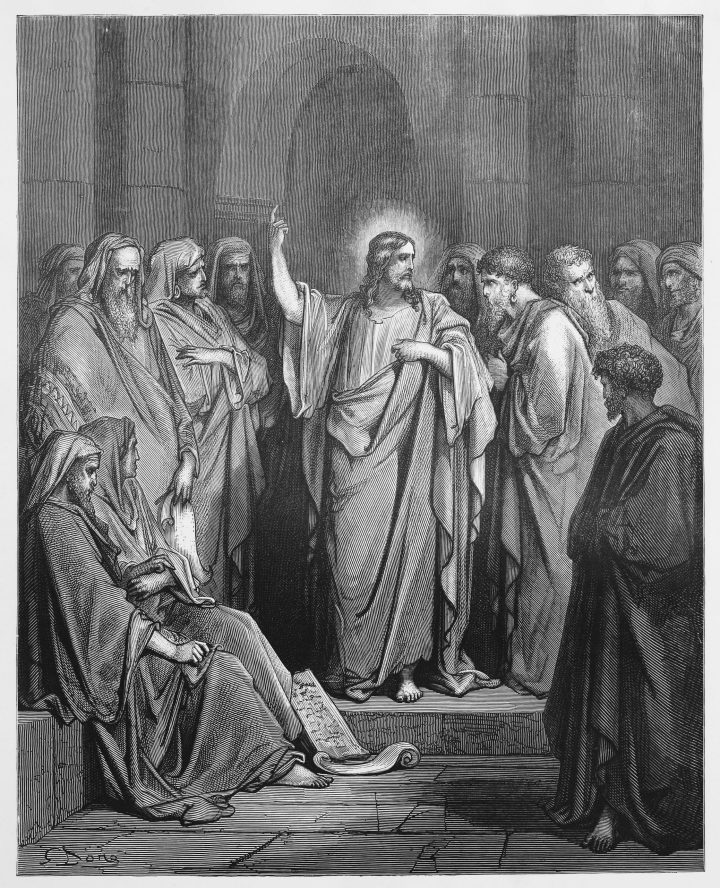
Nativity crèches seem ubiquitous during Advent and Christmas. In my own home, between kids’ sets and Christmas cards and others, there are at least ten. That means, during these holy seasons, I have ample opportunity to ponder many facets of the events and characters surrounding the miraculous birth of Our Blessed Lord in Bethlehem.
In these reflections throughout recent years, the Spirit has opened up a deeper understanding and appreciation of the virtues of detachment and poverty. Both these virtues allow a person to remain open to any reasonable and moral outcome as a manifestation of God’s will. Those who exercise detachment and poverty willingly leave aside certain goods and resources for greater blessings. Working together, these virtues help a person to refuse wresting control from Providence and forcing a particular preferential outcome in any given situation. They help the person express assurance that a greater good is possible, perhaps even already available. Each of the figures in the Nativity crèche provides some illumination of these virtues, and meditating on those figures can help each of us cultivate these essential Christian habits.
At the center of every Nativity crèche is the manger, empty during Advent and occupied by “a baby wrapped in swaddling clothes” during Christmas (Lk. 2:12). St. John the Evangelist began his Gospel account by reflecting on this reality:
“In the beginning was the Word…and the Word was God. … All things were made through him…. And the Word became flesh and dwelt among us, and we have seen his glory, glory as of the only Son from the Father, full of grace and truth. … No one has ever seen God; the only Son, who is at the Father’s side, he has made him known.” (Jn. 1:1-18).
Further, in the great Christological hymn written to the Philippians, St. Paul wrote that Jesus, “though he was in the form of God, did not count equality with God a thing to be grasped.” Instead, Jesus “emptied himself, by taking the form of a slave.” Finally, the Apostle tells us that “he humbled himself by becoming obedient…” (Phil. 2:5-8).
These passages illustrate the essence of detachment. The Second Person of the Trinity detached himself from the inner life of the Trinity for the sake of bringing about the Father’s plan of redemption. In that act, the Word and Son of the Father reckoned himself lower than an equal, humbly taking on the position of a slave. He has refused to grasp for status, and has shown unwavering obedience. All these deliberate actions were taken for the redemption of humanity. They are pure manifestations of detachment and poverty.
Next, we look to Mary, in whose life we can readily see detachment and poverty. Even though she was born free of the stain of original sin, there was ample opportunity for her to learn and exercise these virtues. We know that Mary was consecrated in virginity, and there is a legitimate belief that she served as a Temple seamstress. These details mean that she would have been quite different from the “average” Jewish girls of Nazareth and Judea in that era. Her cultivation of these virtues bore fruit when she responded to Gabriel’s Annunciation with her fiat: “Behold, I am the handmaid of the; let it be to me according to your word” (Lk. 1:38). We can also see her exercising these virtues when she took no offense at her Son’s teaching, which would have eschewed ordinary Jewish custom: “My mother and my brothers are those who hear the word of God and do it” (Lk. 8:19-21). Hers was was the response that all disciples would exhibit if they had cultivated detachment and poverty of spirit.
St. Joseph also occupies a prominent place in the Nativity crèche. With just a little meditation, we come to understand that Joseph also is an exemplar of these virtues. The very first details of the carpenter, shared in St. Matthew’s Gospel, were that he was “a just man and unwilling to put [Mary] to shame” (Mt. 1:19). A typical Jewish man who found out that his wife was pregnant by someone other than him would probably have been easily convinced to put his wife to shame and send her away. Joseph’s right relationship with God, his justice, allowed him to be detached from a typical mode of operating, open to something that would reveal God’s glory more fully.
Joseph’s subsequent actions reveal his detachment and poverty even more fully. In response to a first dream, Joseph “did as the angel of the Lord commanded him” and took Mary into his home (Mt.1:24). Next, Joseph diligently sought suitable quarters for his expectant wife and nigh-born Son, only to be turned away from the residences of extended family. In the end, Joseph and Mary had to place the nascent Messiah in an animal feeding trough inside cramped guest quarters (cf. Lk. 2:7). After a second dream, Joseph obediently fled to Egypt, the opposite direction from which he had planned to travel (cf. Mt. 2:13-15). Each of these details reveals that the guardian of the Holy Family of Nazareth exhibited a deep and detached trust in God’s plan. He gave up his own will, and whatever material comforts he might have had, for the sake of the greater good of following the Lord’s will; and of keeping the Messiah and his mother safe from harm.
We know that shepherds joined the scene soon after the birth of Emmanuel. These field hands had a staggering experience as they went about their mundane business that night: “And an angel of the Lord appeared to them, and the glory of the Lord shone around them, and they were filled with great fear.” All this likely left them quite bewildered, which is why they had to consult together and choose to go hastily to Bethlehem. Everyone who heard their message, except for Mary, “wondered at what the shepherds told them.” Wonder, in that context, could mean amazement; but it could also mean that the shepherds, along with people in the vicinity were utterly confused by this message. Still, the shepherds left their flocks in the field and entered a seemingly random house and shared a mysterious message that had been told to them. Then, they dutifully returned to their work. Because of their detachment, they were able to recognize a miraculous event, and they responded with adoration and praise (Lk. 2:8-18).
Finally, “magi from the east” occupy a prominent place in any crèche, and they offer another excellent example of detachment and poverty. These men left their Chaldean homeland and culture to seek out the realization of an ancient Jewish prophecy that they had learned during the time of the Jews’ exile in Babylon (see Num. 24:17 and the book of the prophet Daniel). When they finally arrived in Bethlehem, they “saw the child with Mary his mother, and they fell down and worshiped him.” While their opulent culture instructed them to worship grand ideas and beautiful material things, they chose to worship a baby. “Then, opening their treasures, they offered him gifts….” In the end, they also had to defer to another angelic message in a dream, changing their route back to “their own country” (Mt. 2:1-12). These men offer another excellent example of detachment and poverty as they gave away their material treasures as the only fitting response to encountering the Creator of the Stars they studied. And, in the end, they were willing and ready to shift their plans so that the will of the One True God could be manifest.
Every Nativity crèche, and the figures that populate them, illustrate the essence of these essential Christian virtues. In every case, the scene and these characters provide pristine examples of how to grow in detachment and poverty, seeking nothing above the glory of God and His Kingdom. It will be well for us to spend the remainder of the Christmas season asking for the grace to emulate the witnesses of this reality from the first Nativity.
Photo by Myriam Zilles on Unsplash




